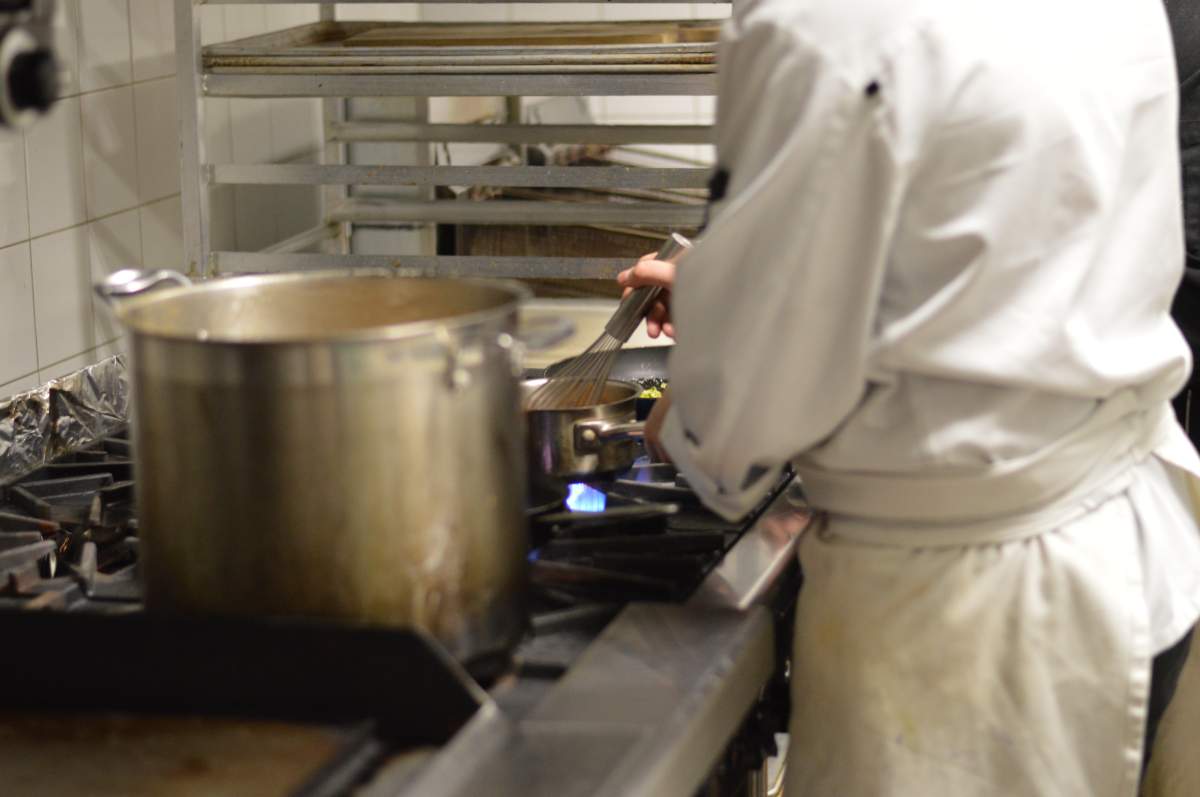The owner of Calgary’s Atlantic Trap and Gill pub says she expects the impending carbon tax hike on Jan. 1 and the eventual minimum wage increase in October will be another blow to her bottom line.

“It’s really like a death by a thousand cuts,” Trap and Gill owner Jill Johnson told Global News.
“The restaurant and pub industry has been hit really hard with such ginormous increases over such a short period of time.”
The executive director of Vibrant Communities Calgary says the increase in the minimum wage can be a hit to businesses’ bottom line – but he says he knows of companies that have made it work.
“There are businesses that have revisited their business models and they’ve said, “We’re going to pay a living wage – we’re not just going to pay a minimum wage, we’re going to pay a living wage – and make money,’” Franco Savoia said.
The minimum wage in Alberta will increase to $15 an hour in October.
But the carbon tax hike – another potential financial blow for local business – is just days away. The tax is set to increase from $20 to $30 per tonne on New Year’s Day — an increase the Canadian Taxpayers Federation (CTF) said Wednesday is going to impact not just small business owners, but all hard-working Albertans.
“We’ve been opposed to the carbon tax for quite some time, simply because it is going to increase the cost for Albertans at a very poor time,” said CTF interim Alberta director Colin Craig.
“Obviously, Albertans have been struggling with the recession, unemployment has been quite high – raising the tax right now is terrible, terrible timing.”
LISTEN: The owner of Calgary’s Atlantic Trap and Gill pub tells Global News she expects the carbon tax and minimum wage hikes to be a blow to her bottom line
Trevor Tombe, an economist and research fellow with the School of Public Policy at the University of Calgary, said that because all businesses are facing the same cost increase they will be able to pass it on to consumers, though less efficient businesses will be hit harder.

Get daily National news
“That’s the nature of competition,” he explained.
Johnson said she has a big space to heat and a fair amount of equipment that runs on natural gas.
She expects she’ll also face increased costs from distributors, who will likely increase their fuel surcharges or raise their prices as a result of the tax increase.
But she said she won’t be able to pass the extra costs on to her customers.
“They’re passing all that on to me and I can’t pass it onto the consumer or I’m going to have a very empty bar,” she said.
“People have a tipping point on what they’re going to pay for a burger and a beer.”
WATCH BELOW: How much will carbon tax increase cost Albertans?

Tombe said there is evidence to suggest a carbon tax, like the one Calgary has, has been effective in other locales at getting people to change their habits.
He pointed to B.C., where he said emissions have gone down as a result.
LISTEN: Economist Trevor Tombe on the carbon tax and minimum wage hikes
Faced with increased costs due to the carbon tax and changes to the minimum wage – which is set to rise again in October to $15 an hour – Johnson says she’s had to slash her own salary by 40 per cent and get rid of the company’s employee benefits plan.
“This is the least I’ve ever made in 19 years of being in business, and probably the hardest I’ve ever worked.”
Savoia says his organization is advocating for a basic income in the long-term, but sees the minimum wage as a good solution in the meantime.
“The reason we support the minimum wage is that it begins to move people closer to what they need to get by,” Savoia says.
“I understand the struggle, I really do,” he adds. “We shouldn’t do it on the backs of staff, that’s all.”
Johnson also owns another Trap and Gill location in Edmonton, which she says she’s “letting go” as soon as the lease runs out in March.
“We’re running out of things to cut,” she said.
“I don’t know what everyone is going to do. I’ve watched so many friends and colleagues shut their doors for the last dime.”
- WestJet execs tried cramped seats on flight weeks before viral video sparked backlash
- Pizza wars? As U.S. chains fight for consumers, how things slice up here
- Health Canada says fake Viagra, Cialis likely sold in multiple Ontario cities
- Canada increased imports from the U.S. in October, StatCan says












Comments